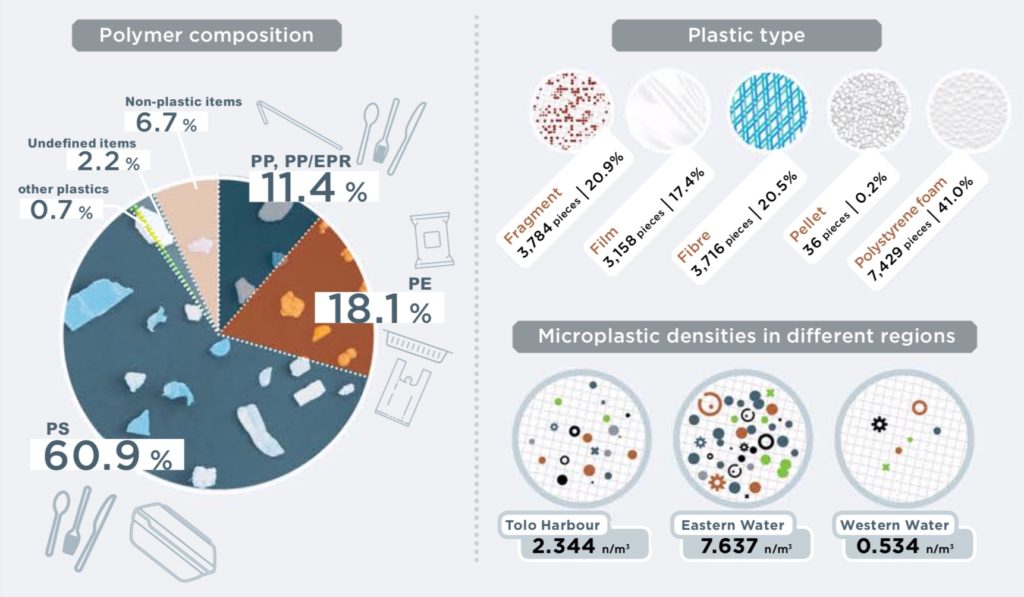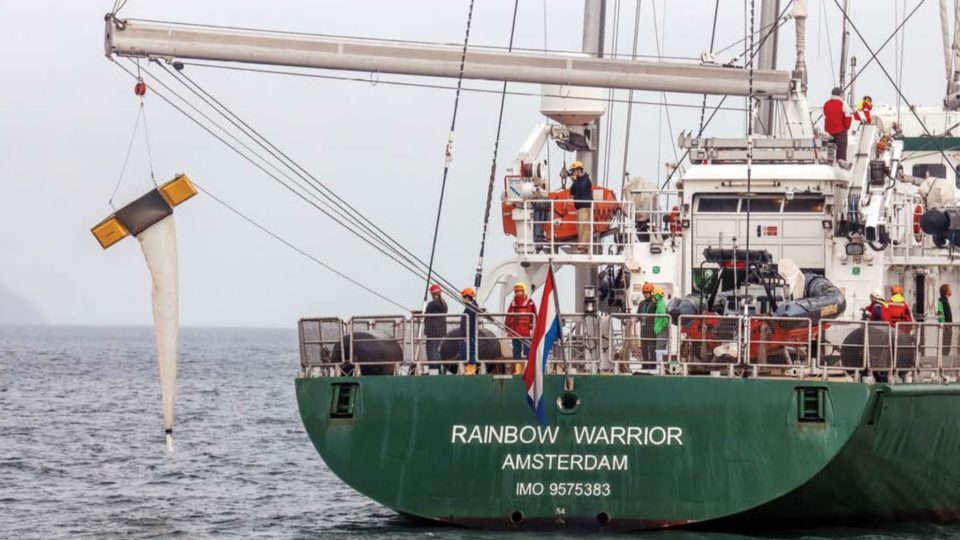Hong Kong’s waters are practically brimming with plastic waste, according to a recent study by the environmental group Greenpeace, with concentrations of plastics around the SAR far higher than in other regional waters.
Greenpeace’s data, released for the first time this week, was gathered from samples taken from 20 locations off Hong Kong’s shores during a Jan. 2018 visit. Researchers found average concentrations of plastic of about 2.94 pieces per cubic meter of water — almost 18 times the amount found in the coastal waters of the East China Sea, and more than 65 times the amount found in the South China Sea.
In fact, the amount was more than 11 times that found off of Hong Kong just three years ago. About 94 percent of the pieces of plastic found qualified as “microplastics” — typically defined as particles less than five millimeters in diameter — a type of pollution considered particularly insidious because of its tendency to find its way into the marine food chain.
“Evidence suggests the city is a hotspot of microplastic pollution,” the study reads.
The study’s authors cited the city’s high annual rainfall — which washes plastic waste into waterways — as well as its proximity to the Pearl River Delta as possible reasons for the high densities of microplastics in its waters.
But even with the Pearl River’s contributions, the plastic in Hong Kong’s waters “is mostly generated by the city itself.”
Noting “the severity of plastic pollution originating from over-packaging,” the study calls on the government to limit, and eventually ban, single-use plastics, and to conduct transparent regular testing of local waters. It also urges businesses to set “ambitious targets” for reducing single-use plastics, emphasizing reduction rather than recycling as a “real solution.”

The issue of plastics in the planet’s seas has become increasingly visible in recent years, buoyed by outrage over media coverage of, among other things, whales dying with stomachs full of plastic bags and massive islands of trash in the Pacific.
Still, according to Edwin Lau Che-feng, executive director of Hong Kong-based environmental group The Green Earth, “there is very little our gov t has done in the past to reduce the amount of plastic waste in both our landfills and nature, including the marine environment.”
Lau acknowledged in an interview with Coconuts HK that legislation to combat the problem could take years, but urged authorities to begin conducting studies and laying the groundwork now.
For the time being, he continued, the government didn’t need legislation to simply step up its efforts to remove plastic already in the environment, efforts which already include boats to pick up floating debris.
“They may need to step up this part,” he said. “If they don’t have enough manpower, they can hire contractors…This govt has a lot of money, and if they don’t spend it on improving the environment, they’re just sitting on money, and it’s not helping.”
Representatives of the Environmental Protection Department did not respond to a request for comment from Coconuts HK as of press time.
Meanwhile, he added, Hong Kong’s environmental protections lag behind its reputation as highly developed territory.
“We are not a developing economy,” he said. “We are good at banking systems, at [business] systems, at IT systems. But it seems that with environmental systems, we are still very elementary.”




